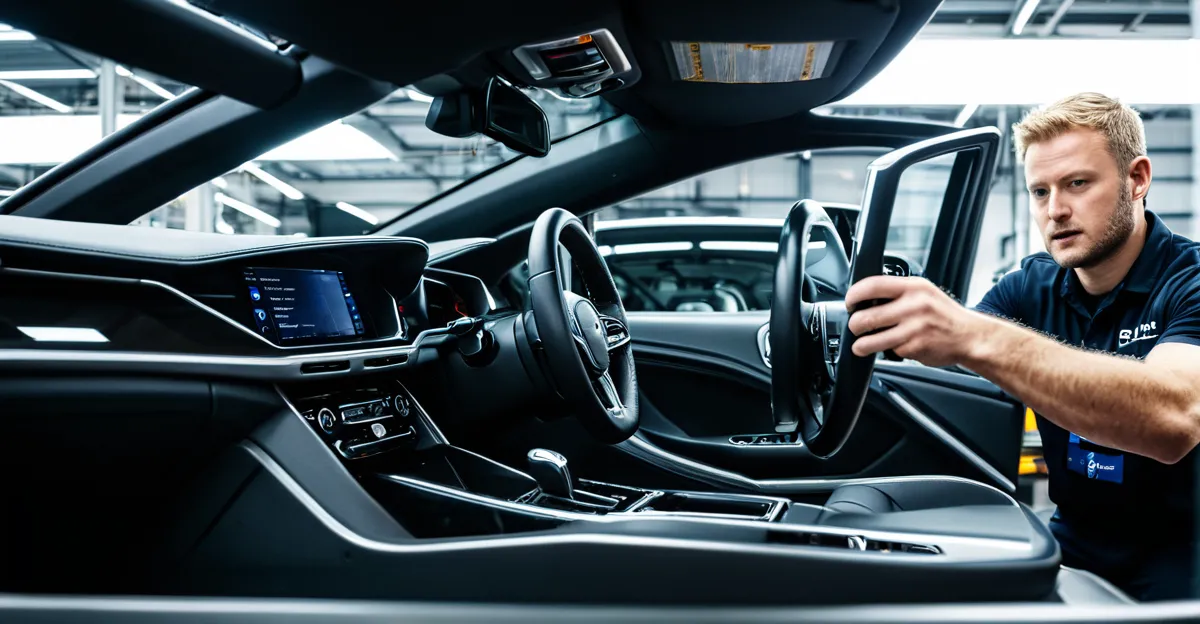Overview of the Engineering Skills Gap in the UK Automotive Sector
The UK engineering skills shortage within the automotive sector presents significant challenges. Recent automotive employment statistics reveal a growing disparity: demand for skilled engineers outpaces the available workforce. This gap results from factors such as an ageing workforce, limited new entrants in core engineering disciplines, and insufficient training aligned with evolving industry needs.
This shortage directly impacts the sector’s competitiveness and productivity. Automotive manufacturers report delays in product development and increased costs due to recruitment difficulties. Key affected engineering disciplines include mechanical engineering, electronics, and software engineering, as these are central to developing modern vehicles, especially with the rise of electric and autonomous technologies.
Have you seen this : Has the UK Automotive Industry Thrived Due to Recent Technological Advancements?
To address these challenges, the industry must prioritize targeted skills development. Without intervention, the skills gap risks slowing innovation and diminishing the UK’s position as a global automotive leader. Understanding the scale and causes lays the groundwork for effective responses and future workforce planning.
Government and Industry-Led Initiatives
The UK government skills strategy plays a pivotal role in addressing the automotive engineering skills shortage. Policy responses include targeted funding allocations aimed at boosting training capacity and incentivising participation in technical education. Central to these efforts are partnerships between government bodies and industry leaders, designed to create sustainable talent pipelines.
Additional reading : How does the UK government support the automotive sector’s transition to green energy?
The Automotive Council UK exemplifies collaborative leadership, bringing together manufacturers, suppliers, and policymakers. This organisation coordinates initiatives that align skills development with industry needs, ensuring funding supports relevant training and apprenticeship schemes. Its role extends to advocating for coherent strategies across the sector, focusing on both immediate shortages and future skill demands.
Automotive sector apprenticeships have expanded significantly through these partnerships. Modern apprenticeships now cover emerging fields such as electric vehicle technology and software engineering, increasing relevance and attractiveness to young people. These programmes combine classroom learning with hands-on experience, improving job readiness and retention in the engineering workforce.
Together, government strategies and industry partnerships foster a dynamic approach to closing the skills gap. By aligning resources, expertise, and training, these initiatives aim to build a resilient, skilled UK automotive workforce responsive to evolving sector challenges.
Collaboration with Educational Institutions
Building a pipeline to address the UK engineering skills shortage depends heavily on collaboration with educational institutions. Early engagement with schools promotes STEM education, crucial for sparking student interest in automotive engineering careers. Schools that integrate practical automotive examples alongside physics and maths tend to see increased enrolment in technical subjects. This focused approach helps tackle sector challenges, such as limited new entrants.
University partnerships with the automotive industry align curricula with real-world demands. Joint research initiatives and co-designed courses ensure graduates are workforce-ready with up-to-date skills. For example, universities often update modules in electronics and software engineering to reflect emerging vehicle technologies. These collaborations also facilitate internships and placements, providing vital hands-on experience that complements theoretical knowledge.
Vocational training expansion further strengthens the talent supply. Offering retraining pathways enables existing workers to adapt to evolving technologies, particularly in fields like electric vehicle manufacturing. This flexible, practical training approach addresses the gap in digital and technical competencies within the sector, supporting both entry-level and experienced engineers.
Together, these educational collaborations provide a structured solution to the UK engineering skills shortage, enhancing both quantity and quality of automotive sector recruits while responding dynamically to changing industry needs.
Company Case Studies: Leading Examples
Examining UK automotive company case studies reveals practical approaches to mitigating the UK engineering skills shortage. Jaguar Land Rover, Nissan, and Bentley have launched ambitious engineering skills development programmes tailored to their operational and technological demands. These initiatives focus on enhancing recruitment, upskilling current staff, and building a robust talent pipeline that supports both immediate and future needs.
Jaguar Land Rover’s advanced training centres emphasize hands-on learning in electric and autonomous vehicle technologies, providing apprentices and graduates with direct exposure to cutting-edge systems. Nissan’s collaboration with local colleges offers integrated apprenticeship schemes combining classroom study and work experience. Bentley’s approach includes targeted mentorship and lifelong learning initiatives aimed at retaining experienced engineers while evolving skillsets to meet new sector challenges.
Local supply chain SMEs also contribute significantly by sharing best practices in workforce development, despite facing resource constraints. These case studies highlight common barriers such as limited access to niche technical skills and the need for continuous curriculum updates.
Together, the successes and shared challenges across these companies underscore the importance of coordinated efforts in engineering skills development. Their experiences offer valuable insights for broader sector strategies aiming to close the skills gap sustainably.
Effectiveness of Current Strategies
Evaluating the skills gap analysis reveals mixed outcomes from recent initiatives. While automotive sector workforce impact shows some improvement in recruitment and training numbers, persistent shortages remain, especially in digital and software engineering roles. This indicates that programmes have yet to fully meet evolving industry demands.
Programme outcomes highlight successes such as increased apprenticeship enrolments and stronger government-industry collaboration. Yet barriers like limited funding continuity and slow curriculum updates restrict progress. Feedback from stakeholders—including employers, trainees, and education providers—points to a need for more agile, tailored training that matches rapid technological advances in the sector.
Employers emphasize the urgency of integrating emerging digital skills into development programmes. Trainees seek clearer progression pathways and closer ties between classroom learning and real-world engineering challenges. Education providers call for enhanced resources and industry input to keep training relevant.
Overall, current strategies have laid a solid foundation but require ongoing refinement. Addressing these barriers with stakeholder-driven adjustments will be key to closing the UK engineering skills shortage sustainably and boosting sector competitiveness through a well-prepared workforce.
Future Outlook and Emerging Skills Needs
As the UK automotive sector evolves, the future automotive workforce must adapt rapidly to technological advances. Increasing electrification and digitalisation drive demand for enhanced digital skills in engineering, particularly in software development, data analysis, and AI applications. These shifts expand beyond traditional mechanical expertise, necessitating more interdisciplinary capabilities.
What technologies are shaping skills demand in automotive engineering? Primarily, electric drivetrains and autonomous vehicle systems require engineers proficient in embedded software and advanced sensor integration. Additionally, AI-powered diagnostics and predictive maintenance call for expertise in machine learning, influencing recruitment and training priorities.
The predicted skills requirements for the next decade emphasise agility and continuous learning. Engineers will need proficiency in emerging tools and platforms, alongside core foundations in electronics and software engineering. This trend stresses the importance of lifelong vocational training and flexible upskilling pathways to maintain workforce competence amid rapid change.
Ongoing efforts to ensure workforce adaptability include expanding curriculum content and developing specialised apprenticeship programmes. These strategies aim to prepare engineers not only for current demands but also for future innovations, securing the UK’s competitive position in global automotive markets.


